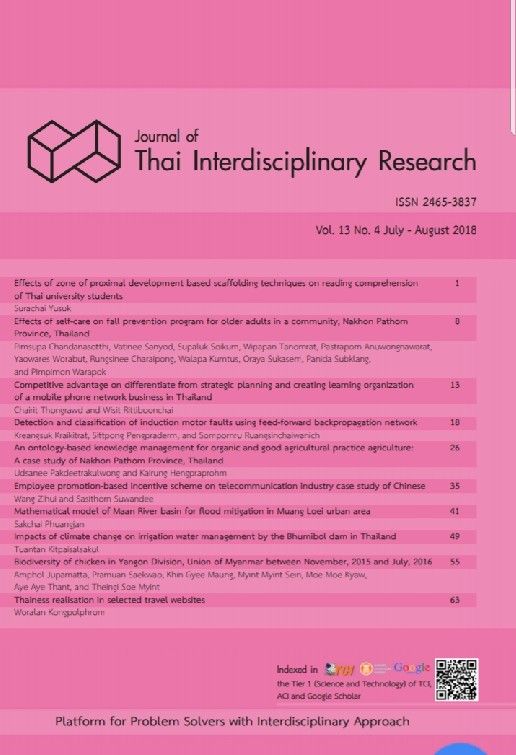Impacts of climate change on irrigation water management by the Bhumibol dam in Thailand
Main Article Content
Abstract
The trends of the impacts of climate change on the irrigation water management by the Bhumibol reservoir, the largest dam in Thailand, which supplies water to the irrigation areas in the Chao Phraya basin is determined. Three periods: present (1979-2006), near future (2015-2039) and far future (2075-2099) are considered. The study result shows various trends in the climate and hydrological parameters which have associated impacts on water management. Thus, the air temperature will increase but the relative humidity will decrease. The evapotranspiration and irrigation water demand will increase. Both rainfall and inflow to the reservoir will increase. Because of that, the water management for the irrigation areas will be affected, such that the water deficit and number of deficit years will decrease in the near and far futures. This astounding positive impact is due to the fact that the increase of the water supply by the Bhumibol reservoir will exceed the increase of the water demand. For possible adaptation measures to future climate change, various non structural and structural measures are proposed for implementation.

